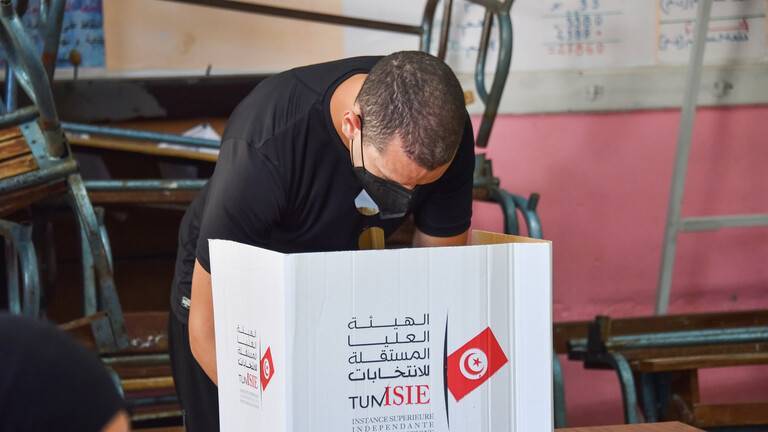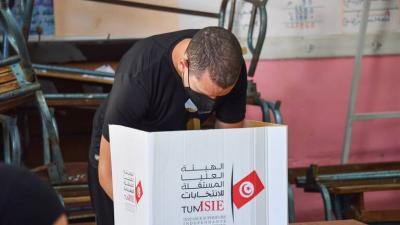Hundreds of supporters of Tunisian President Kais Saied gathered in the capital's downtown on Monday evening to celebrate the results of the referendum on constitutional amendments, which were supported by 90% of voters. Polling centers closed at 10:00 PM local time, and counting of the votes began. According to the Independent High Authority for Elections, 2,458,000 people voted, with a turnout rate exceeding 27%.
Supporters of Saied wrapped in national flags filled the main street in Tunis, Habib Bourguiba Avenue. The demonstrators chanted slogans in support of the current Tunisian president Kais Saied and against the opposition leader, former parliament speaker Rached Ghannouchi, amid a heavy security presence.
According to a survey conducted by Sigma Conseil, 25% of registered voters participated in the referendum, with more than 92.3% of those who voted supporting the new draft constitution, while 7.7% opposed it. There were only two questions on the ballot, relating to approval or disapproval of the new draft constitution.
For his part, the head of the Independent High Authority for Elections, Farouk Bouasker, stated that the official final results of the vote could be announced on Tuesday. However, his deputy Maher Jedidi said on Monday evening that "the elections commission has three days to count the votes."
Voting took place amid sharp disagreements between the president's supporters who initiated the referendum and their opponents. Some opposition parties called on their supporters to boycott the referendum.
On May 25, the Tunisian president issued a decree calling voters to participate in a public referendum on a new constitution for the country on July 25. On June 30, Saied published the draft constitution in the Official Gazette and amended it on the eighth of the same month.
The opposition accuses Saied, who was a law professor prior to his election as president, of wanting to become the sole authoritarian ruler of the country. The constitutional amendments, which the opposition does not approve of, grant the head of state unlimited powers compared to the basic law adopted in 2014. If the amendments are approved, Tunisia will cease to be a mixed presidential-parliamentary republic, and the head of state will appoint the government and judges. According to government media, the majority of the population supports Saied in his initiatives to effectively change the political system.




